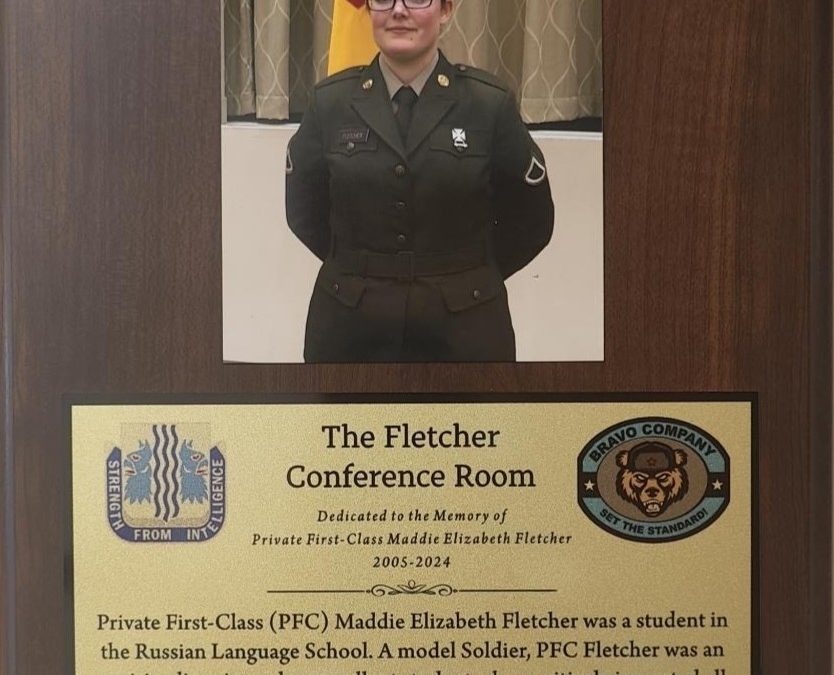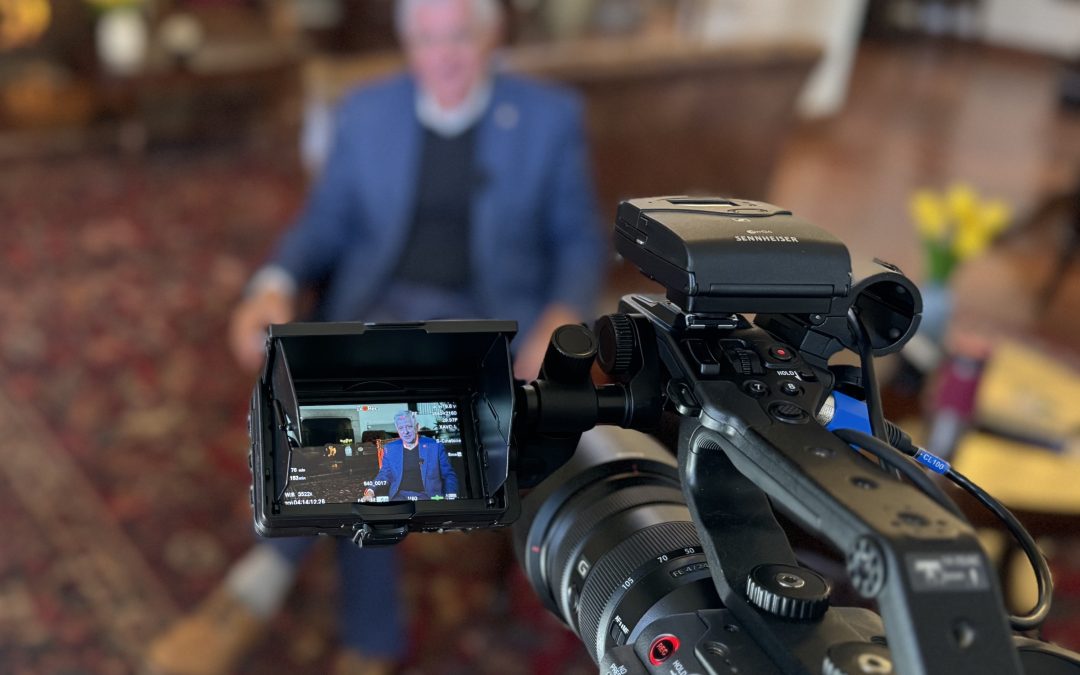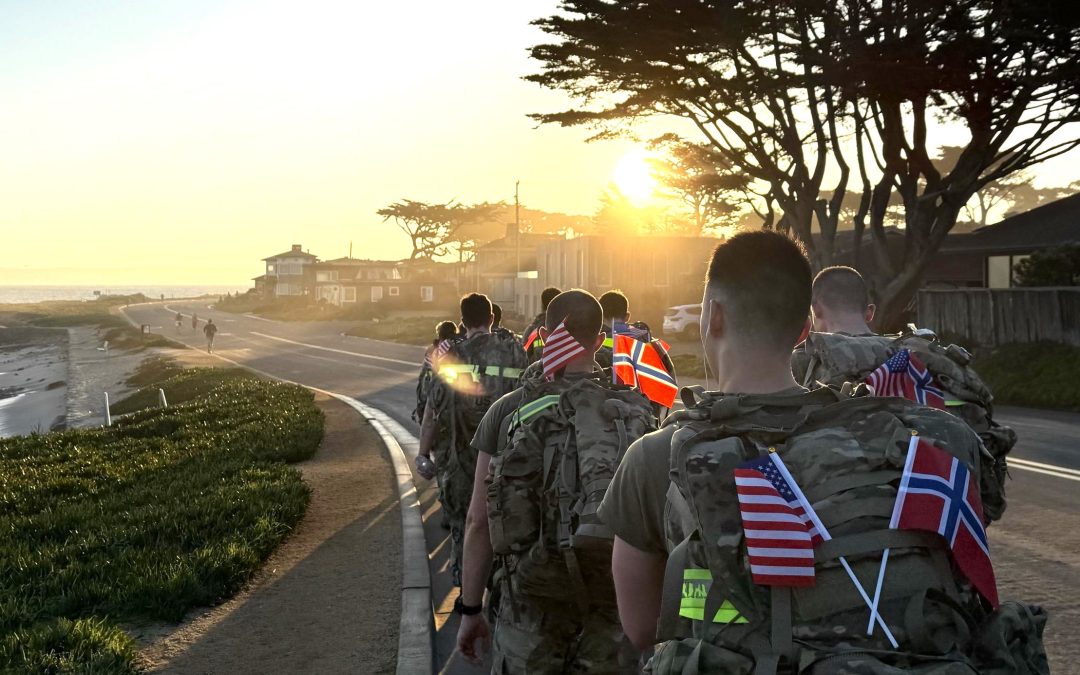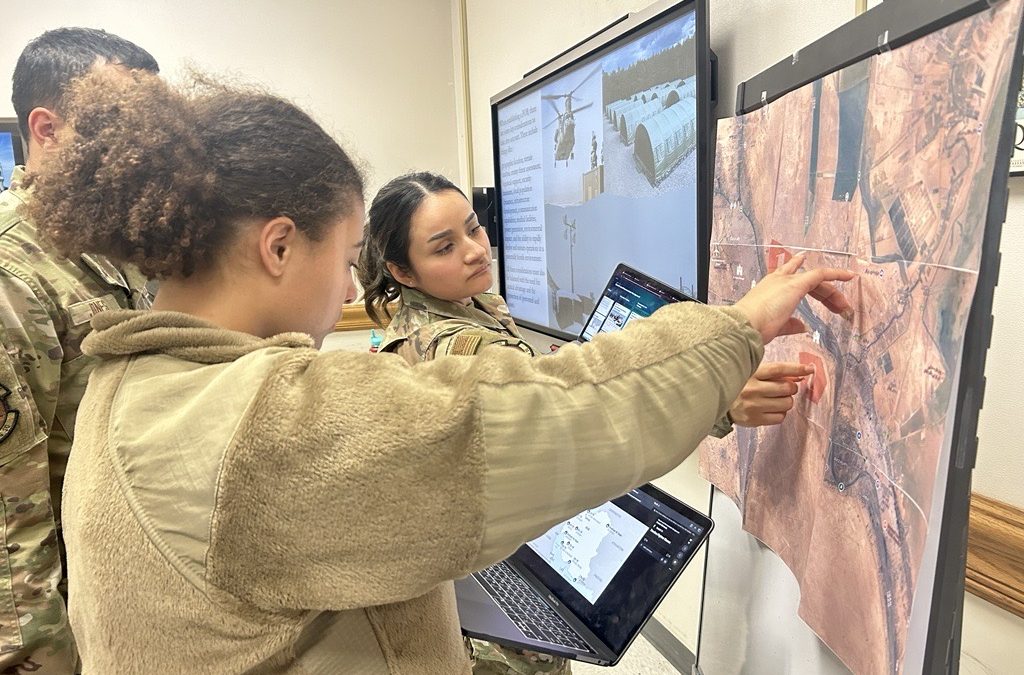By Patrick Bray
DLIFLC Public Affairs

Spc. Andrew Rodriguez, a 1990 Spanish graduate of the Defense Language Institute Foreign Language Center, stands beside a RU-21A aircraft used for signal intelligence by the 138th Aviation Company. Rodriguez and other veterans of the unit are working to build a memorial honoring the 138th’s history at Orlando International Airport. (Photo courtesy Andrew Rodriguez)
MONTEREY, Calif. – Andrew Rodriguez, a December 1990 graduate of the Defense Language Institute Foreign Language Center, found his calling restoring a signal intelligence aircraft to memorialize the unit he served in as a Spanish linguist.
Rodriguez entered the U.S. Army Reserves in 1984 and was assigned to the 138th Aviation Company, tasked with airborne signal intelligence missions. In 1990 he attended DLIFLC.
“When I was at DLI, I think there were a lot of questions why Spc. Rodriguez was taking Spanish,” he jokes, referring to his Spanish last name. “But it was clear I didn’t speak a word. I think the professors were harder on me as a result, which of course made me better.”
After language training, Rodriguez returned to the 138th Aviation Company. Because he was at DLIFLC at the time, he did not deploy to the Persian Gulf with the unit during the 1990-1991 conflict. Instead, he used his linguistic skills on counter narcotic and other missions until he left the Army in 1997.

A retired RU-21A aircraft awaits restoration by the 138th Aviation Company Memorial, a non-profit organization formed by the 138th’s veterans. In early 2000, the veterans learned the fate of some of the signal intelligence aircraft they had flown in. They were sitting in an aircraft salvage yard in Denver, Colorado. It would be another 15 years until one of the aircraft would be saved from the scrapyards. Their plan is to restore it for display outside of Orlando International Airport in Florida, paying homage to their old unit’s history. (Photo courtesy the 138th Aviation Company Memorial)
“I’m most proud of the fact I got to work and say goodbye to the Soviet Brigade in Cuba,” said Rodriguez of his time in service, recalling the ex-Soviet military unit that left Cuba in 1993.
Now, Rodriguez is the president of the 138th Aviation Company Memorial, a non-profit organization formed by the unit’s veterans from Vietnam to Desert Storm, which looks to memorialize the signal intelligence unit’s 33-year mission. The 138th was activated in Da Nang, Vietnam, in 1966 and inactivated on April 10, 1999 in Florida.
“We are restoring one of the aircraft that flew many DLI-graduate linguists in West Germany, Central America, the Caribbean, Egypt and Desert Storm,” said Rodriguez.
In early 2000, veterans of the 138th first learned the fate of some of the RU-21A aircraft they had flown. They were sitting in an aircraft salvage yard in Denver, Colorado. It would be another 15 years until one of the aircraft would be saved from the scrapyards. Their plan is to restore it for display outside of Orlando International Airport in Florida, paying homage to their old unit’s history. Orlando International Airport is the former McCoy Air Force Base.

A retired RU-21A aircraft being restored by the 138th Aviation Company Memorial, a non-profit organization formed by the 138th’s veterans. (Photo courtesy the 138th Aviation Company Memorial)
A similar aircraft, a JU-21A also assigned to the 138th, was shot down in Vietnam in March 1971 killing Vietnamese linguist Spc. Richard Jay Hentz along with the rest of the crew. The memorial will encompass all who served in the unit.
DLIFLC provides resident instruction in 23 languages at the Presidio of Monterey, California, with the capacity to instruct another 65 languages in Washington, D.C., graduating more than 200,000 linguists since 1941.
In addition, multiple language training detachments exists at sites in the U.S., Europe, Hawaii and Korea spanning all the U.S. geographic combatant commands, to support the total force.




